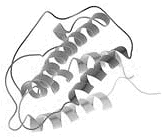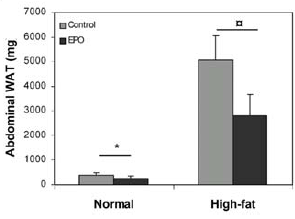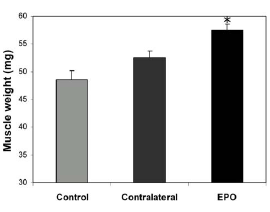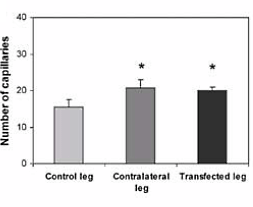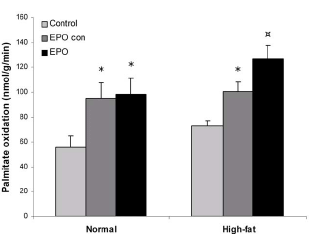|
Definition: "An ergogenic aid is any substance or phenomenon that enhances performance "
|
|
||||||||
17.09.2009 |
|
|
EPO-gene injection results in increased muscle and definition
The Danes injected plasmids containing synthetic EPO-genes once into the tibialis cranialis [calf muscle] of mice. At the same time they subjected the mice to electric shocks to improve the cells' uptake of the new genes. Then they looked at whether the animals became better at burning fat.
After treatment, the concentration of EPO in the mice increased by a factor of 60. And the increase of the EPO concentration in the calf muscle was 500 times higher than in the blood.
This abnormal EPO level changed the way in which the mice reacted to a high fat diet. They also became less fat. The figure below shows the effect of the synthetic genes on the amount of abdominal fat. The mice that were on a healthy diet also lost significant amounts of fat.
The synthetic genes also caused an increase in muscle mass in the mice, especially in the tibialis cranialis, but also in the same muscle in the other leg of the animals.
The increase in muscle mass is probably the result of new blood vessels being created in the muscles as a result of high EPO levels.
The cellular metabolism changes in the muscle. Sensitivity to insulin increases and the concentration of glucose in the blood decreases. The muscle cells become more efficient at burning fat, as the figure below shows.
The researchers think they may be on the way to a new treatment for obesity, but suspect that the current substances are not suitable. An abnormally high EPO level is not very healthy: the blood becomes so thick that the risk of heart attack increases. But the Danes are predicting the development of "EPO versions to counteract metabolic syndrome without exacerbated and undesired hematocrit increase".
Source:
More:
|
|

